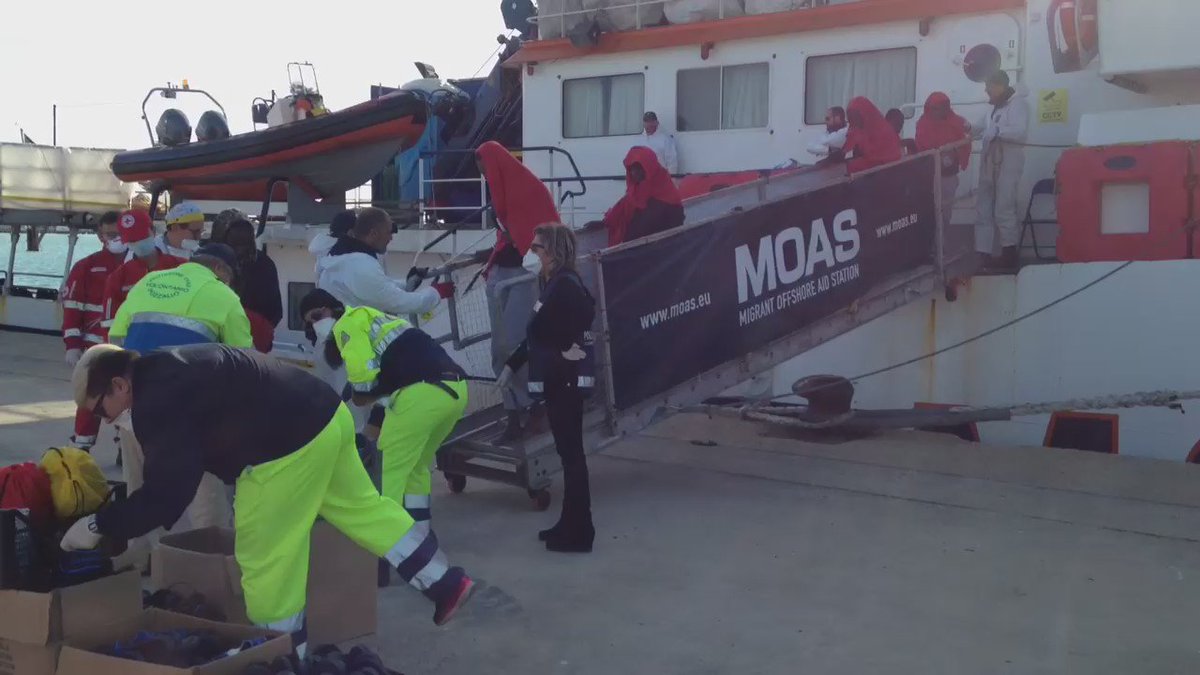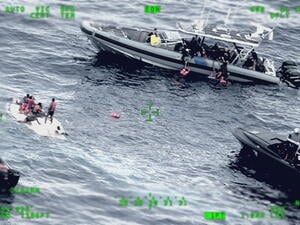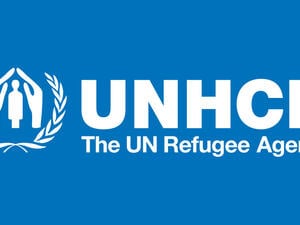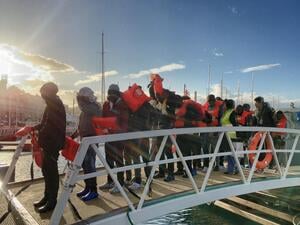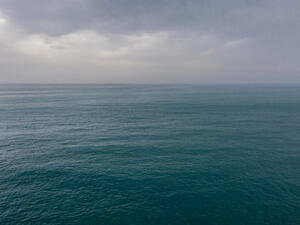Rescue boat scours sea for flimsy craft
Rescue boat scours sea for flimsy craft

Yasmine, a 26-year-old pregnant woman from Senegal, rests with her two-year-old daughter, Khaija in the clinic aboard the Phoenix.
ABOARD THE PHOENIX – It was a calm morning on board the rescue vessel Phoenix off the coast of Libya. The sun had broken through and flying fish accompanied the boat as it patrolled in international waters of the Mediterranean Sea.
A two-metre swell meant few boats would risk the conditions and the crew believed there was little likelihood of a rescue operation.
Suddenly, a dinghy was spotted and the crew swung into action. Waves of that magnitude make it difficult to see boats that are low in the water, such as dinghies.
“They were very, very lucky that they were spotted," Gonzalez, the captain, told the UN Refugee Agency, UNHCR.
The dinghy carried 146 people, and within minutes they were being pulled aboard in groups of 25. Lifejackets were removed, and medical and identity checks made. Within two hours, all were safely on board the Phoenix, which is operated by the Malta-based Migrant Offshore Aid Station (MOAS).
“This was easy. No one got hurt, no one died, no dead children."
MOAS is the first privately funded search and rescue organization operating in the central Mediterranean.
"This was easy," a MOAS crew member said. "No one got hurt, no one died, no dead children. It was easy".
Today 26 percent of the rescue operations in the Mediterranean are carried out by NGOs, most by MOAS’s two ships, the Phoenix and the Topaz. Since 2014, MOAS has saved about 33,000 people. Its crew is made up of people with decades of experience with the Maltese armed forces, the Italian navy, the US military and private firms.
The second phase of the Phoenix’s operation involved providing solar blankets, water and biscuits to those brought aboard. Anyone feeling ill was taken to the small clinic and assisted by a Red Cross team composed of a doctor and two nurses.
Among them was Yasmine, a 26-year-old pregnant woman from Senegal, with her daughter, two-year-old Khaija.
My eyes met Khaija's and I tried to make her smile, without success. She gazed around in incomprehension and confusion, as if she were looking inside a madhouse.
Yasmine had carried her daughter from Senegal to Libya. They travelled with Yasmine’s husband in the hope of finding a better life in Europe. From Libya, they attempted the risky journey by boat twice without success.
Once, they were intercepted by other smugglers who robbed them of the few possessions they had and returned them to the beach. The second time, they paid smugglers who failed to turn up.
“I’m afraid to go through the desert again.”
“I’m afraid to go through the desert again,” Yasmine said. So they tried a third time.
They were placed in a large compound with about 1,000 other people. They only had enough money -- 600 Libyan dinar -- to pay for Yasmine and Khaija to make the crossing, so her husband stayed behind in Libya. He considered the possibility of returning to Senegal and trying a different route.
They were taken during the night to a beach at Sabratha, from where they set out at dawn in the inflatable dinghy. Most of the 146 people on board were men, with some women and children.

One of the men who had inhaled fuel onboard the dinghy was throwing up, others were suffering from sea sickness, cold, or exhaustion.
By eight in the evening, everything was calm. There were no serious medical emergencies. Khaija settled down, cradled by her mother.
The next day, the Phoenix remained in the area on the lookout for a possible second dinghy. A deflated empty dinghy was noticed some hours later, but nothing else.
Last year, more than 4,500 people died on the Mediterranean.
As the Phoenix was heading for the Sicilian port of Pozzallo, news was received of the grim discovery of seven bodies on a dinghy 100 miles off Malta. Two Ghanaian men were evacuated to Malta suffering from dehydration. One died and the other was in intensive care.
In 2016, more than 5,000 people died on the Mediterranean. Khaija and Yasmine were lucky to have been spotted by MOAS and taken to safety.

